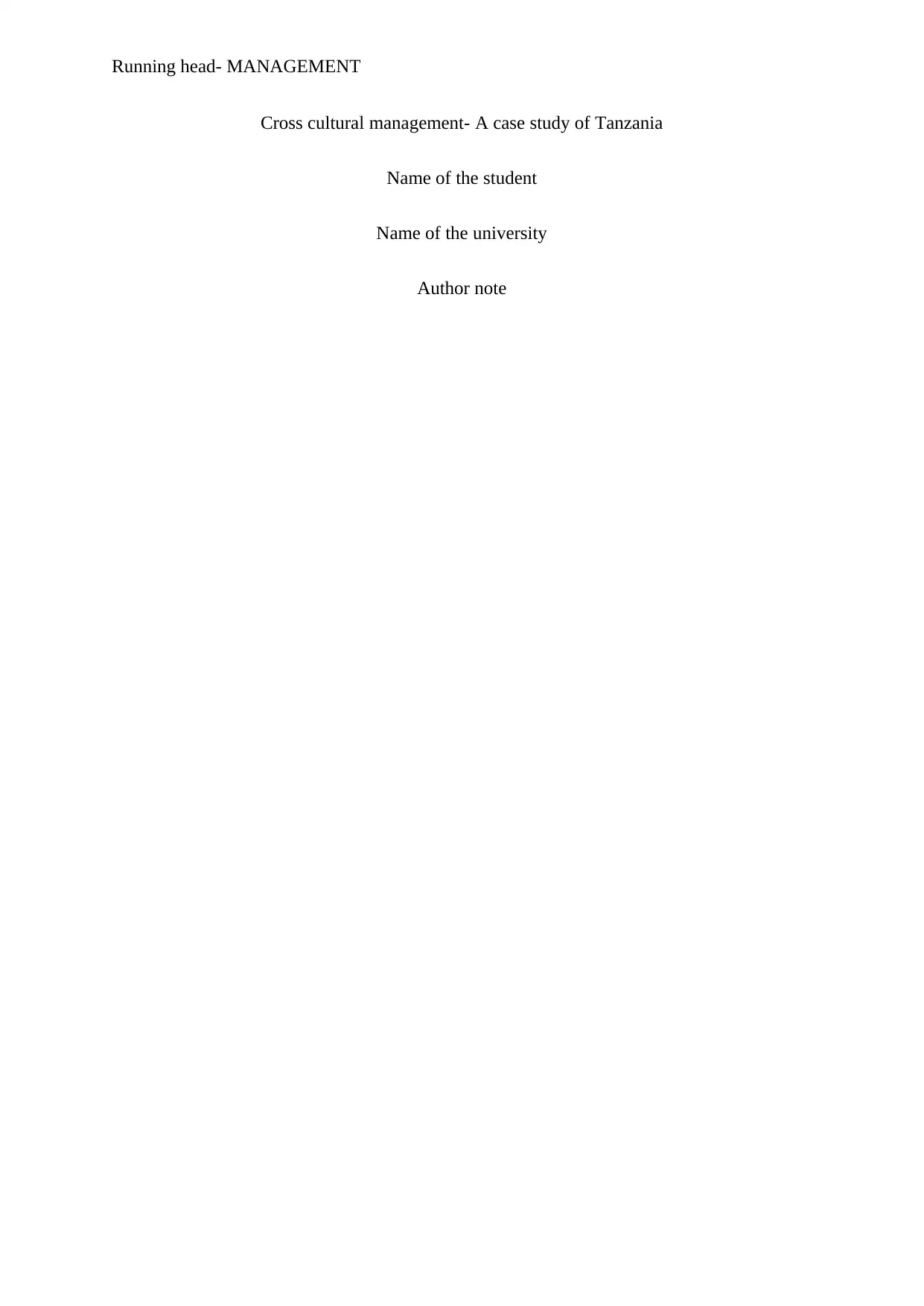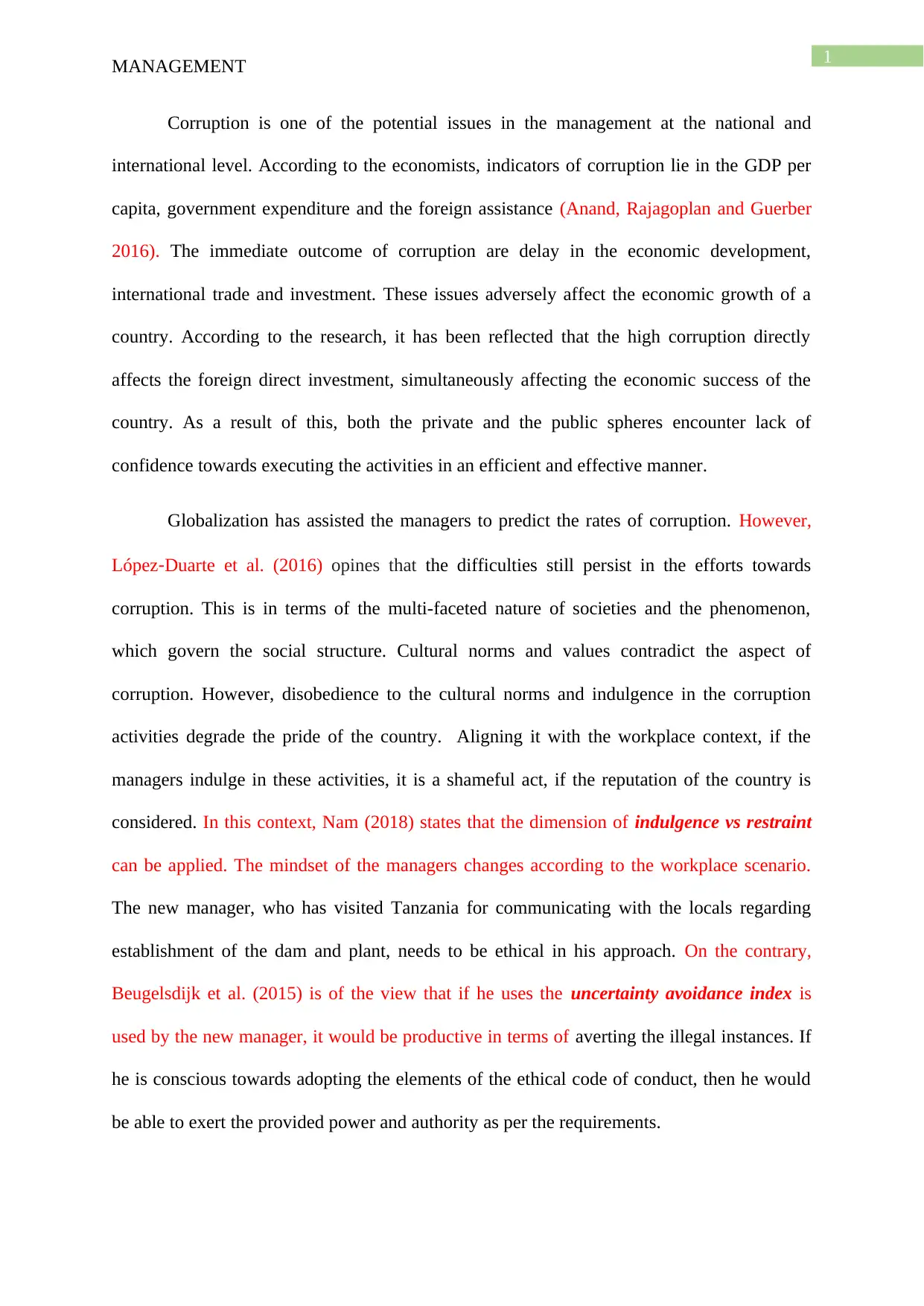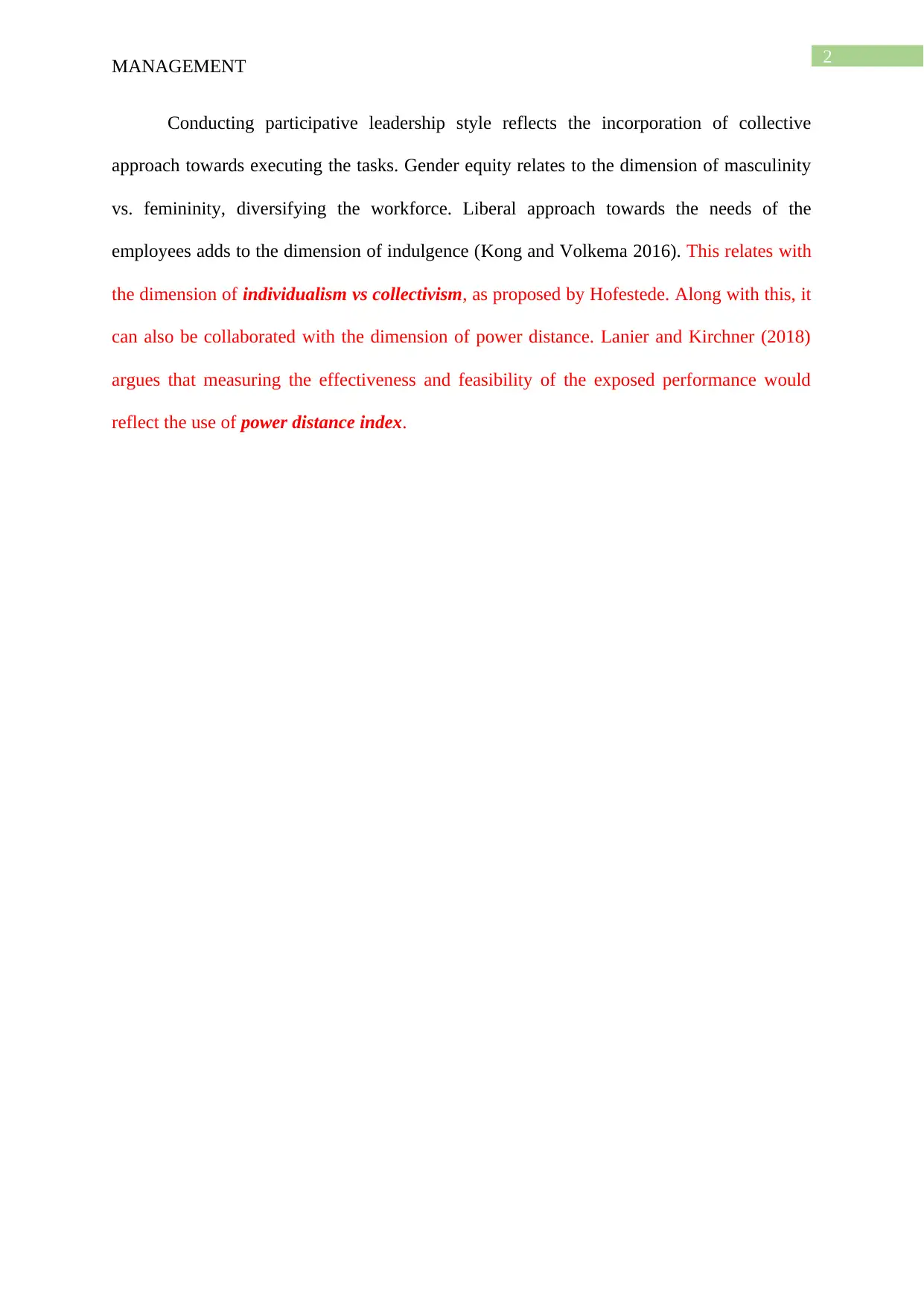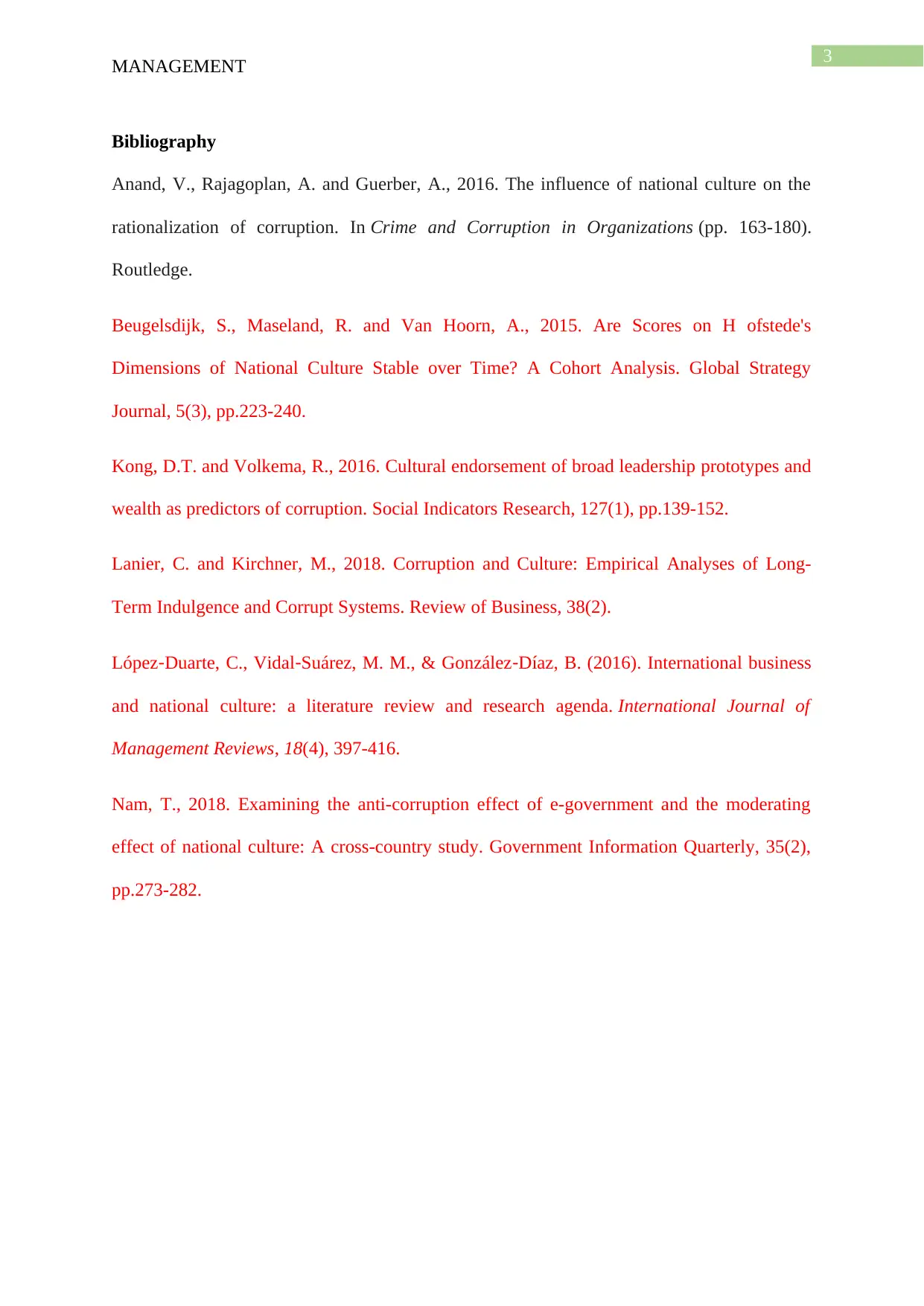Cross-Cultural Management Case Study: The Tanzania Project Dilemma
VerifiedAdded on 2023/04/12
|4
|608
|131
Case Study
AI Summary
This case study examines the challenges faced by a US-based company, Hydro Generation (HG), in its dam project in Tanzania. The central issue revolves around the manager, Brett Jones, and his adaptation to Tanzanian business practices, some of which raise concerns about ethical conduct and potential corruption. The case presents a dilemma for the vice president, Graham Steinberg, who must decide whether to retain Jones for the project's operational phase. The analysis explores cross-cultural management issues, including the impact of corruption on economic development and foreign investment. The assignment requires the application of management theories, such as Hofstede's cultural dimensions, to understand the implications of Jones's actions and the importance of ethical leadership. The provided solution highlights the interplay of cultural norms, values, and the potential for unethical behavior in a global business context. The case study also touches upon the dimensions of indulgence vs. restraint, uncertainty avoidance, and the use of power distance index in evaluating the effectiveness of management practices. The solution provides a comprehensive overview of the challenges and potential solutions for navigating cross-cultural management issues.
1 out of 4










![[object Object]](/_next/static/media/star-bottom.7253800d.svg)